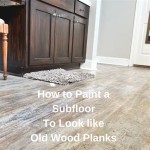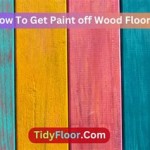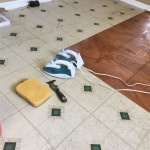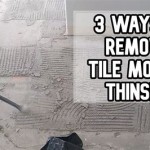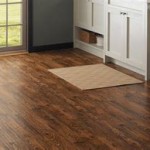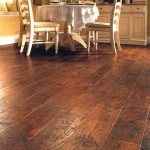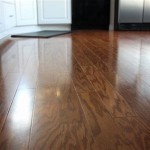What Type of Flooring Is Best for Moisture?
Selecting the right flooring for areas prone to moisture is crucial for maintaining the aesthetic appeal and structural integrity of your home or commercial space. Moisture can lead to warping, buckling, mold growth, and even structural damage if not properly addressed. Therefore, understanding the characteristics of different flooring materials and their resistance to moisture is essential for making informed decisions.
This article will examine various flooring options suitable for areas with high humidity, frequent spills, or potential water exposure. We will explore the pros and cons of each option, helping you make an informed choice that aligns with your specific needs and budget.
1. Waterproof Flooring Options
Waterproof flooring options offer the ultimate protection against moisture damage. These materials are impervious to water and are ideal for kitchens, bathrooms, laundry rooms, and other areas prone to spills and splashes. Here are some of the most popular waterproof flooring options:
- Luxury Vinyl Tile (LVP) and Luxury Vinyl Plank (LVP): LVP and LVP are among the most popular waterproof flooring options. They offer a wide range of styles and designs, mimicking the look of natural materials like wood, stone, and tile. LVP is highly durable, scratch-resistant, and easy to clean, making it a good choice for high-traffic areas.
- Ceramic and Porcelain Tile: Ceramic and porcelain tile are classic choices for areas with high moisture levels. They are durable, scratch-resistant, and easy to clean. These materials are available in a variety of colors, textures, and sizes, allowing for creative design possibilities. However, their hard surface can be uncomfortable to stand on for extended periods.
- Engineered Stone: Engineered stone, such as quartz and granite, is a luxurious and highly durable option. It is impervious to water and stain-resistant, making it an excellent choice for kitchens and bathrooms. Engineered stone is also heat-resistant, making it suitable for areas near ovens and fireplaces.
2. Water-Resistant Flooring Options
Water-resistant flooring options are not entirely impervious to water but offer reasonable protection against moisture. They are typically made from materials that are water-repellent and can withstand occasional spills or splashes. Here are some popular water-resistant flooring options:
- Engineered Hardwood: Engineered hardwood is a popular choice because it offers the beauty and warmth of real wood. It is more stable than solid hardwood and less prone to warping and buckling in humid conditions. Engineered hardwood is typically treated with a water-resistant finish, making it suitable for areas with moderate moisture levels.
- Cork Flooring: Cork is a natural material known for its water-resistant properties. It is a comfortable and quiet flooring option, offering excellent insulation and shock absorption. Cork is also sustainable and biodegradable, making it an environmentally friendly choice.
- Laminate Flooring: Laminate flooring is a cost-effective option that mimics the look of natural materials like wood or stone. It is typically treated with a water-resistant coating and is a good choice for areas with moderate moisture levels. However, laminate flooring is not as durable as other options and can be susceptible to damage from prolonged water exposure.
3. Factors to Consider When Choosing Moisture-Resistant Flooring
When selecting moisture-resistant flooring, several factors are critical to consider:
- Level of Moisture Exposure: Consider the frequency and intensity of moisture exposure in the area where you are installing flooring. Areas with high moisture levels, like bathrooms and kitchens, require waterproof materials. Moderate moisture levels, such as those found in basements or laundry rooms, can benefit from water-resistant options.
- Style and Aesthetics: Flooring should complement your home's overall design and personal preferences. Explore different styles and designs to find an option that meets your aesthetic requirements while also offering the necessary moisture resistance.
- Budget: Flooring options come in a wide range of price points. Consider your budget and choose a material that offers the best value for your money.
- Maintenance Requirements: Some flooring materials require more maintenance than others. Choose a material that aligns with your comfort level and available time for upkeep.
Ultimately, the best flooring for moisture depends on your specific needs and circumstances. Consulting with a flooring specialist can provide valuable insights and guidance in choosing the right option for your project.

The Best High Humidity Flooring Options Builddirect

What Is A Moisture Barrier And When It Needed For Flooring

Best Utility Room Flooring Types Moisture Humidity Considered Wood And Beyond Blog

Top 3 Best Residential Flooring Types To Avoid Mold Issues In Southern Homes Ozburn Hessey

5 Of The Best Waterproof Flooring Options For Your Home Angi
Top 6 Exclusive Water Resistant And Waterproof Floors

Avoid Cupping And Buckling In Hardwood Floors Twenty Oak

Understanding Types Of Moisture Barriers Protecting Your Floors And Home

Best Practices For Installing Laminate Flooring In Humid Or High Moisture Areas

Thermaldry Basement Flooring Systems Waterproof
See Also
